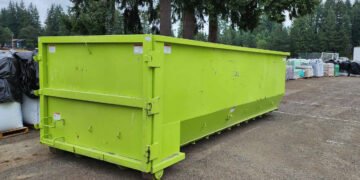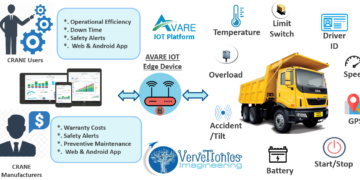Are you in the market for a new portable generator?
Maybe you’re going camping, have an emergency, or just need standby power for your home or business. Regardless of what you use it for, it’s important that you find the right generator for your needs.
The market is flooded with lots of portable generators from different brands and manufacturers. With so many options to choose from, finding the best portable generator for you can be a tad difficult. If this describes your predicament, worry not; we’re here to help.
In today’s post, we’ll be looking at how you can find the perfect portable generator for your needs.
Look at the Generator’s Size
The first thing you need to consider before buying a portable generator is what size generator you want. Generators come in various sizes, both in terms of size and power. In terms of power, portable generators differentiate into three types, namely:
- Generators that produce less than 2000 watts
- Generators that produce between 2000-7000 watts
- Generators that produce more than 7000 watts
Portable generators with less than 2000 watts are the smallest and lightest of the bunch. As you’ve probably guessed, generators with more than 7000 watts are the biggest and heaviest. Make sure you align your generator choice with your specific power demands and space or transportation capability.
For large power needs, you might want to consider a standby generator instead of a portable one. However, be prepared to dig deep in your pockets for standby generators.
Pick a Generator That Matches Your Needs
For stuff like camping trips or charging a few electric gadgets, a small portable generator will do just fine. However, for heavy-duty tasks like construction work or power backup for your establishment, you’ll need a larger generator.
The point is, you’ll need to pick a generator that matches your exact needs. There’s no point in buying a generator that’s too large for minor power needs; it’ll be a complete waste of cash. Also, a portable generator will be practically useless if it doesn’t meet your power requirements.
Here are a few tips for determining your power requirements:
- Have a list of items you want to power simultaneously
- Write down the wattage requirements of all the devices; you can get the information from the operator manual
- Add up all the power requirements of each item to get the running watts
- Choose one item with the highest power requirements and add it to the running watts to get the final figure
The extra power you add is known as the starting watts, or surge power. This is the amount of power the generator requires to kickstart electrical appliances. You can check out this wattage sheet for a perfect example of how to calculate your power requirements.
Consider the Noise Level
Portable generators make noise and lots of it. If you’re buying your generator for residential use, you’ll have to check for any regulations on how noisy your generator can be. Some communities have a zero-tolerance policy on noisy generators.
Aside from community and HOA regulations, you may also want a silent generator so that it doesn’t disturb your sleep or distract your studying. Noisey generators can also be a huge distraction in the workplace. If noise is a huge concern, you should consider getting a silent generator.
A generator’s noise level is measured in decibels. You can check any generator’s noise level on the manual. Make sure your generator’s noise levels don’t exceed allowable levels.
Check the Generator’s Outlets
Ensure you get a generator with the right number and types of outlets for your needs. A generator with a 30amp locking-type power outlet will do fine for appliances that consume lots of power, like window air conditioners.
Check the Fuel Consumption and Run Time
Another important factor to consider when buying a portable generator is its fuel consumption and run time. Remember, different generators run on different types of fuels like propane, diesel, or natural gas. Deciding what fuel source you want for your generator depends on a couple of factors like the cost, power requirements, among others.
You also want a generator with enough runtime to sustain your power needs. For instance, a generator with a runtime of at least eight to ten hours will last you the entire night. You also won’t have to refuel it after every few hours.
However, if you only need to charge a few devices for a couple of hours, you don’t need that much runtime. Around 4 hours of runtime should do just fine.
Check the Features
Naturally, you’d want a generator with tons of features, but feature-laden generators come with a hefty price tag. Portable generators that use pull handles are a tad outdated. Generators with electric start are much better because they can help you save time and effort.
Electric start is one of the many features you should look for in a portable generator. A couple of other features to look out for include:
- High-temperature shutdown
- Low-oil temperature shutdown
- Automatic start
- CO shutoff
Generators like the Jackery 500 range are loaded with features and are among the best power generators on the market. Make sure you explore all your options to find the best one for your budget.
Solar generators are also a good choice, especially for the environmentally-conscious individual. As the name suggests, solar generators use solar energy for power generation.
Check the Cord Set
Lastly, check the generator’s cord set before making your purchase. You don’t need heavy-duty cord sets for trivial activities like camping and the likes. If you don’t get a cord set with your generator, you can always buy one later.
You Deserve the Best Portable Generator
The information above should help you pick the best portable generator for your specific needs. Be sure to explore all your options before taking your pick. Also, be on the lookout for end-of-the-year deals from your favorite vendors.
Don’t forget to check out the other informative pieces on the site.






























































